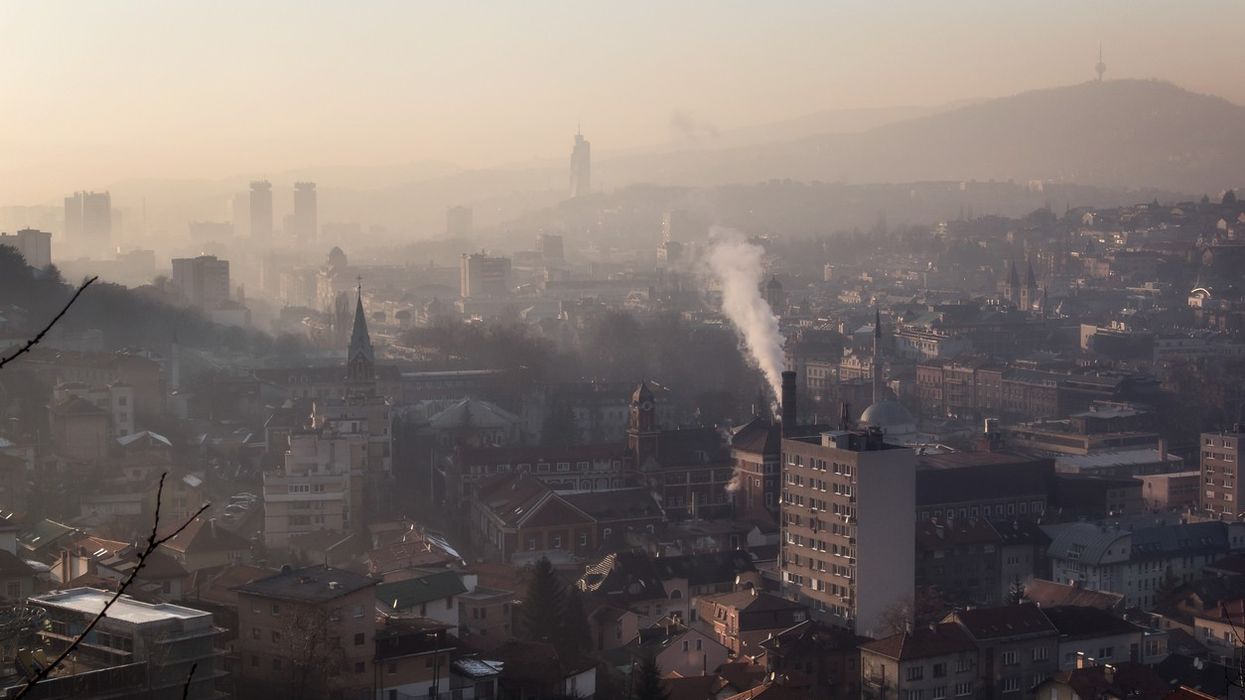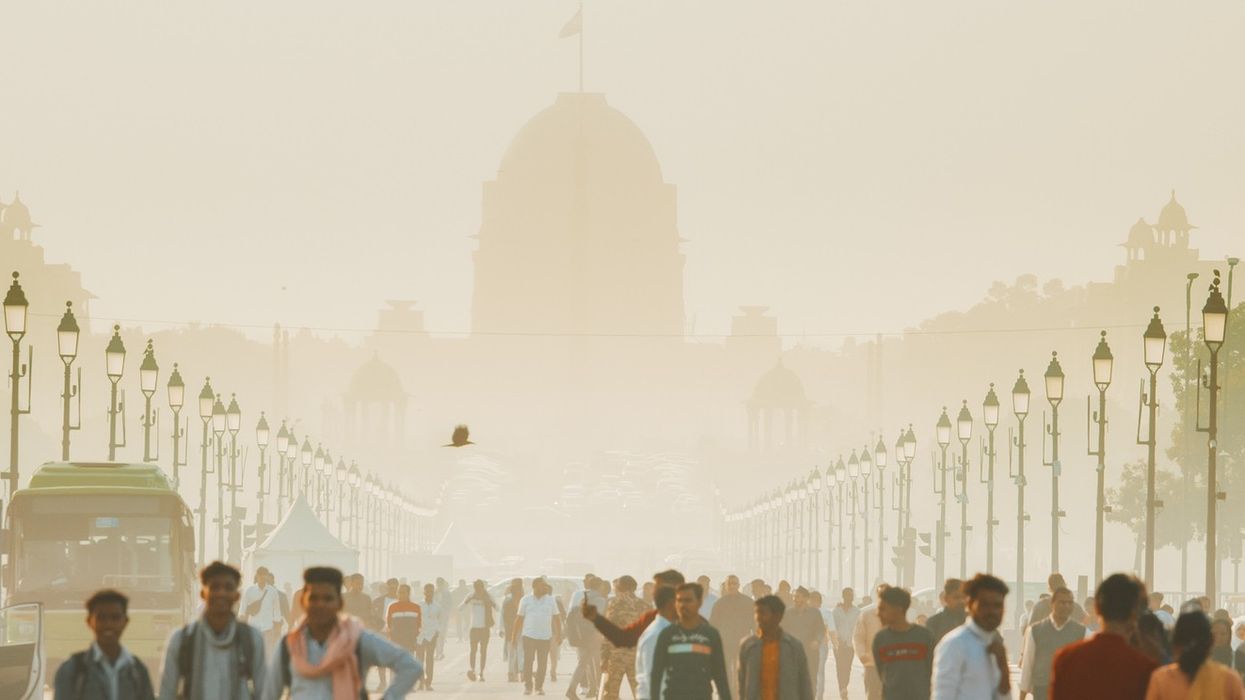Air pollution is a silent killer, claiming millions of lives annually and leaving nearly every corner of the globe gasping for clean air. According to the latest annual report by Swiss air quality technology company IQAir, only seven countries worldwide met the World Health Organization’s (WHO) guidelines for safe levels of PM2.5 pollution in 2024. These countries- Australia, New Zealand, Estonia, Iceland, and a handful of small island states- stand as rare exceptions in a world where dirty air has become the norm.
The report, now in its seventh year, paints a grim picture of global air quality, with countries like Chad, Bangladesh, Pakistan, the Democratic Republic of the Congo, and India bearing the brunt of extreme pollution. In these nations, PM2.5 levels were found to be at least 10 times higher than the WHO’s recommended limit of 5 micrograms per cubic metre (µg/m³) annually. Chad, the most polluted country, recorded levels 18 times higher than the guideline.
What is PM2.5, and why does it matter?
PM2.5 refers to fine particulate matter smaller than 2.5 micrometers in diameter, tiny enough to penetrate the bloodstream and wreak havoc on the human body. These particles are emitted from vehicles, industrial processes, burning fossil fuels, and even natural sources like wildfires. Once inhaled, they can cause respiratory and cardiovascular diseases, damage organs, and contribute to premature death.
Doctors stress that there is no safe level of PM2.5 exposure. However, adhering to the WHO’s guidelines could save millions of lives each year. Air pollution is now the second-biggest risk factor for death globally, trailing only high blood pressure.
“Air pollution doesn’t kill us immediately; it takes maybe two to three decades before we see the impacts on health, unless it’s very extreme,” said Frank Hammes, CEO of IQAir. “Avoiding it is one of those preventative things people don’t think about till too late in their lives.”
Progress amid the crisis
Despite the overwhelming challenges, the report highlights some areas of progress. The share of cities meeting WHO PM2.5 standards rose from 9% in 2023 to 17% in 2024, indicating that efforts to curb pollution are yielding results in certain regions.
India, home to six of the world’s 10 most polluted cities, saw a 7% reduction in air pollution between 2023 and 2024. This improvement, though modest, is a step in the right direction for a country grappling with severe air quality issues. Similarly, China has made remarkable strides in tackling its pollution crisis. Between 2013 and 2020, the country reduced its extreme PM2.5 pollution by almost half. Beijing, once notorious for its smog-filled skies, now has air quality comparable to Sarajevo, the most polluted city in Europe.
Disparities within regions
While progress in countries like India and China is encouraging, the report also reveals stark disparities within regions. In Europe, eastern European and non-EU Balkan countries suffer from significantly worse air quality than their western counterparts. Sarajevo, the capital of Bosnia and Herzegovina, was named the most polluted city in Europe for the second consecutive year.

“Huge disparities are seen even within one of the cleanest continents,” said Zorana Jovanovic Andersen, an environmental epidemiologist at the University of Copenhagen. “Citizens of eastern European and non-EU Balkan countries breathe the most polluted air in Europe, and there is a 20-fold difference in PM2.5 levels between the most and least polluted cities.”
The data gap
One of the challenges in addressing air pollution is the lack of comprehensive monitoring, particularly in low-income countries. The IQAir report relies on ground-level data collected from government-run and independent monitoring stations. However, many parts of Africa and West Asia have insufficient monitoring infrastructure, leaving their populations in the dark about the quality of the air they breathe.
Roel Vermeulen, an environmental epidemiologist at Utrecht University, noted that while the report’s findings for Europe align with previous research, data biases are likely in regions with few monitoring stations. “Virtually everyone globally is breathing bad air,” he said. “What brings it home is that there are such large disparities in the levels of exposure.”
The path to cleaner air
The report underscores the urgent need for governments to take decisive action to improve air quality. Policies such as investing in renewable energy, expanding public transport networks, and promoting walking and cycling infrastructure can significantly reduce pollution levels. Additionally, banning harmful practices like burning farm waste and enforcing stricter emissions standards for industries and vehicles are critical steps.
Public awareness also plays a vital role. Many people remain unaware of the long-term health risks associated with air pollution, often dismissing it as an unavoidable consequence of modern life. Educating communities about the dangers of dirty air and the importance of preventive measures can drive demand for cleaner policies and technologies.
A global call to action
The IQAir report serves as a wake-up call for governments, businesses, and individuals alike. While the progress in countries like China and India offers a glimmer of hope, the overall picture remains bleak. With only seven countries meeting WHO guidelines, the vast majority of the world’s population continues to breathe air that poses serious risks to their health.
As the global community grapples with the dual challenges of climate change and air pollution, the need for coordinated action has never been greater. Clean air is not a luxury; it is a fundamental human right. The time to act is now, before the toll of dirty air becomes even more devastating.
In the words of Frank Hammes, “We have the tools and the knowledge to tackle air pollution. What we need is the will to make it a priority.” The question is: Will we rise to the challenge?





